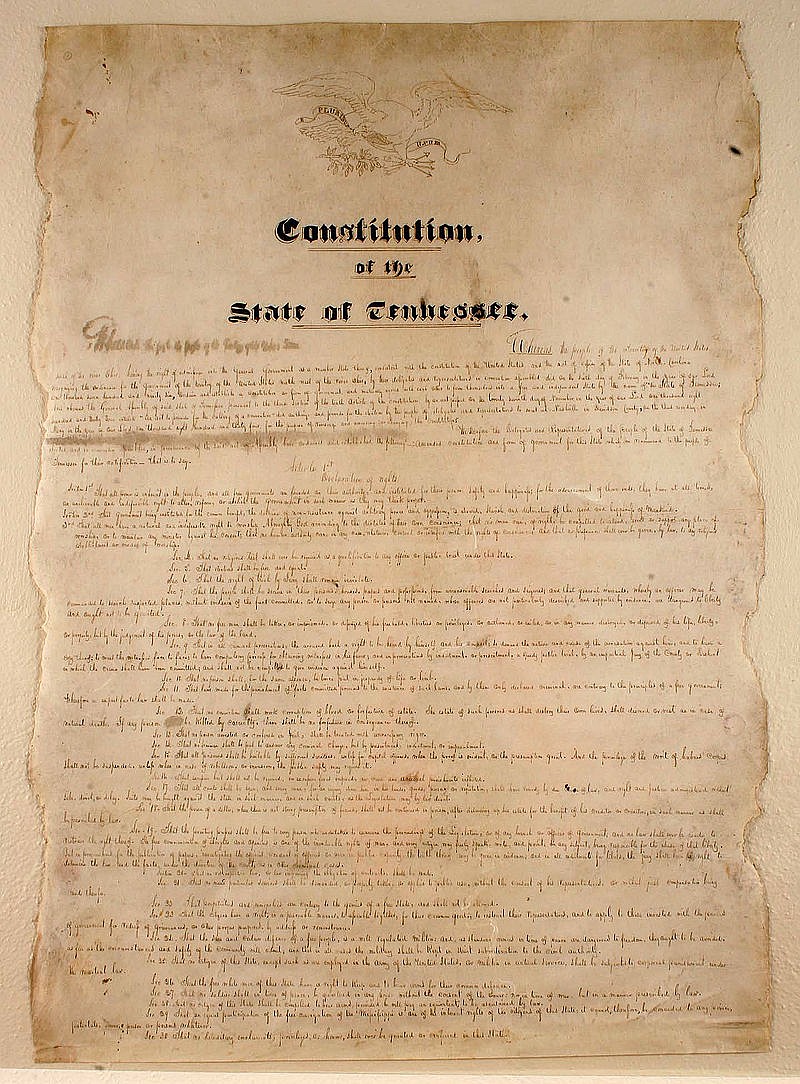The recent account of a state worker snatching a meeting agenda packet from a news reporter's hands was a low point in the open government ethic of Tennessee.
I wish it were the only one.
At a public meeting of the Douglas Henry State Museum Commission, Nashville Scene reporter Cari Wade Gervin picked up a meeting packet laying on the table that contained a proposed new operating policy, including a new Code of Conduct for commissioners. She was trying to copy down information in it.
The Nashville Scene reported that the museum's media relations officer grabbed the document out of Gervin's hands. To see it, the media relations officer maintained, Gervin had to file an Open Records Request with the Tennessee Attorney General's Office.
After the meeting, still trying to find out exactly what commissioners just approved with little discussion, Gervin talked with House Speaker Beth Harwell who is on the commission and was still there. Harwell gave Gervin her copy of the meeting packet with the relevant new policy.
Another museum employee attempted to take it from her until a bystander spoke up and said that Harwell had indeed given her copy to the reporter.
The museum employee then backed off.
First, a meeting packet with proposed policies to be voted upon by a governing body in Tennessee is a public record and open for any citizen to see. It is a public record as soon as it is created.
Second, wherever this particular hostility toward open government came from, we should dispense with excuses for the bad behavior of an individual and focus instead on the culture that allowed it to blossom.
Just a few years ago, a man was arrested at a meeting of Greene County's industrial development board because he interrupted to ask board members to speak louder so the audience could hear.
More recently, the Sumner County Board of Education has been in a $200,000-plus losing legal battle to refuse records requests from citizens if they communicate via email. It was over a request to see, of all things, their (top secret?) public records policy.
In both cases, the public officials didn't particularly like the citizen involved - and I'm guessing the state museum official didn't particularly like the Nashville Scene reporter's stories. So they made up rules and exercised government force to try to control and push out those with viewpoints opposite their own.
In this information age, everyone wants to be the master of controlling the message. Controlling the speaker is one way. Controlling access to information is another.
That's why it's important that Tennesseans regularly affirm their right to access government documents and meetings. What someone says about what's in a proposed government policy may or may not be exactly what's in it.
The rest of the story is what Gervin reported from the documents that the museum's media relations official tried so hard to keep from her.
The new policy requires all commissioners except the chair and vice-chair to notify the commission before they speak to the public or to journalists about anything related to the museum, and provide advance written copies if they write something.
If a commissioner doesn't give advance notice, or says anything that is thought to "disparage or malign" the museum, the board can force the commissioner to resign.
The First Amendment should protect those commissioners' rights to free speech despite this overreaching policy. Just as it protects "troublesome" citizens and "entitled" reporters.
But perhaps commissioners - which includes four lawmakers and nine people appointed by the governor and General Assembly - should check their museum for a copy of the Tennessee Constitution for some guidance.
In the Declaration of Rights, they'll find this:
"That all power is inherent in the people, and all free governments are founded on their authority, and instituted for their peace, safety, and happiness; for the advancement of those ends they have at all times, an unalienable and indefeasible right to alter, reform, or abolish the government in such manner as they may think proper."
And in Section 19, "That the printing press shall be free to every person to examine the proceedings of the Legislature; or of any branch or officer of the government, and no law shall ever be made to restrain the right thereof. The free communication of thoughts and opinions, is one of the invaluable rights of man and every citizen may freely speak, write, and print on any subject, being responsible for the abuse of that liberty "
Deborah Fisher is executive director of the Tennessee Coalition for Open Government.
